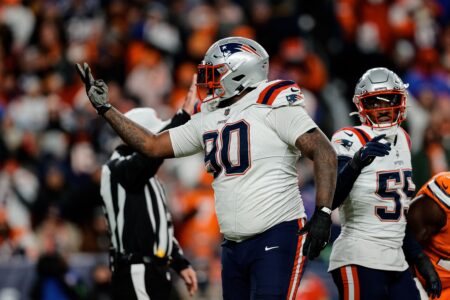That is a ridiculous argument because nothing on any offense works as well against playoff caliber teams and better defenses. Playoff football is historically lower scoring any way. Many of those games were played in less than perfect weather conditions, and yes, when you play better teams you do not do as well.
And yet the 2001-2006 teams scored better than their season average in the playoffs. As for the argument that playoff football is historically lower scoring, last year's playoffs featured scores such as 45-28, 36-32, 45-10, 37-20 and 31-10 and 29-23. Not particularly low-scoring games. The year before included scores such as 41-36, 48-21, 35-24, and 31-25. The Packers averaged over 30PPG in their 4 victories en route to the SB. The playoffs aren't that low scoring any more, even though our offense seems to have had trouble putting up points in the playoffs, with the exception of the Denver game.
The 07-11 teams were no less balanced run/pass than the 01-04 teams, particularly from 08-10 when 0-2 of that 4-4 occurred.
You can't possibly believe this. The 2008 team, which didn't make the playoffs was balanced. 2007 had a decent rushing attack, but it certainly wasn't balanced. 2009? Belichick himself admitted that he had Moss, Welker and nothing else. 2010? The Jets dared the Pats to run the ball in the playoffs by putting 8 DBs on the field in the playoffs. 2011 - the worst rushing attack in years. Those were not balanced offenses. The Pats passed 45 times and rushed 28 in the loss to the Jets - and only because the Jets dared them to run. They passed 41 times and rushed 19 in the SB loss to the Giants last year. And they passed 48 times and rushed all of 16 in the 2007 SB loss to the Giants. BB compared the Texans' DL to the Giants this week in terms of their length and ability to deflect passes, and their ability to generate pressure. Going pass happy and trying to spread the Giants out didn't work too well in 2 SBs. I could see the Texans posing similar problems. Keeping them honest with the running game and play action will open up a lot of opportunities, and make the spread more effective too.
You can't really say that you expect an offense in 2012 to be doing what it did in 2003, after the rule changes that have redefined the game, can you?
Of course not, and I never suggested that. I did, however, suggest that an over-reliance on the spread leads to a predictable offense that can be too easily shut down by good defenses. And I would like to see the Pats evolve towards a more balanced approach that uses all of their weapons - including a generous amount of the spread, which can be devestatingly effective - instead of situationally limiting themselves.
Interestingly, I bet that if you researched this further you would find that the Patriots run/pass ratio was much higher in those playoff games. So it could easily be argued that more balance in the playoffs is the cause of less points in the playoffs is more conservative offense and too much balance.
2011 SB, Giants: 41 passes, 19 rushes; 17 points
2011 AFCCG, Ravens: 36 passes, 31 rushes, 23 points
2011 Divisional game, Broncos: 34 passes, 30 rushes, 45 points
2010 Divisional game, Jets: 45 passes, 28 rushes, 21 points
2009 Divisional game, Ravens: 42 passes, 18 rushes, 14 points (though I tend to discount this a bit, as the Pats got behind early)
2007 SB, Giants: 48 passes, 16 rushes, 14 points
2007 AFCCG, Chargers: 33 passes, 31 rushes, 21 points
2007 Division game, Jaguars: 28 passes, 29 rushes, 31 points
Just a correlation, and the data are limited, but those data suggest that going pass happy (40 pass attempts or more) tends to result in fewer points produced. That's not factoring in the caliber of the defenses (2 games against the Giants, 1 against the Ravens, 1 against the Jets) vs. the other opponents.

















